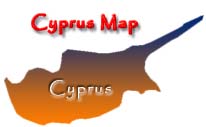UN envoy expresses cautious optimism for Cyprus settlement
 Athens, Nicosia - The United Nations' senior envoy for Cyprus expressed cautious optimism on Friday that a settlement for the divided Mediterranean island can be reached, but cautioned that it still remained a difficult task.
Athens, Nicosia - The United Nations' senior envoy for Cyprus expressed cautious optimism on Friday that a settlement for the divided Mediterranean island can be reached, but cautioned that it still remained a difficult task.
"It is an incredibly difficult talk, nobody should underestimate how hard it is after so many years and such deep conflict," said Alexander Downer, special advisor to the UN Secretary-General. "But days like today just help to confirm the view that I am cautiously optimistic."
Downer's comments came after Greek Cypriot leader Dimitris Christofias emerged upbeat from talks with Turkish Cypriot leader Memet Ali Talat, saying "that we are one step away from resolving the dead-end issues for legal and judicial powers."
Christofias said he would next meet Talat on January 28 to embark upon the complex legal issue of settlement and property disputes. Thousands of Cypriots claim property that was seized decades ago.
Also on the agenda will be security guarantees and future governance of the island as well as the return of refugees.
Any deal will need to be approved by Cypriots in separate, simultaneous referendums.
Despite the enthusiasm that greeted a new round of peace talks in September following a four-year stalemate, weekly talks between Christofias and Talat failed to produce a breakthrough in 2008.
The eastern Mediterranean island has been split since 1974, when Turkey invaded the northern third of Cyprus in response to a short- lived coup initiated by the military junta then ruling Greece.
Ankara still maintains more than 35,000 troops in the northern part of the island and refuses to normalize ties with the internationally recognized Republic of Cyprus, an EU member.
Since then, countless efforts by the United Nations to find a solution to the decades-old problem have failed, most recently when former president Tassos Papadopoulos led the Greek-Cypriot rejection of UN reunification plan in a 2004 referendum.
Turkish Cypriots had overwhelmingly voted in favour.
Following the election of Christofias last February, in which he ousted hardliner Papadopoulos, immediate steps were taken by both sides to relaunch full-fledged peace talks.
Although a settlement has been thwarted for decades, mediators are optimistic that Christofias and Talat will broker a deal in 2009.
The two sides have agreed in principle to a settlement based on a federation, but the Turkish Cypriots want a loose federation, while the Greek Cypriots want a stronger central government and more limited regional powers which will prevent the island falling back into partition.
There is disagreement on whether a bi-zonal federation would permit free movement or try to enforce the ethnic majorities in the north and the south.
The ongoing conflict in Cyprus also threatens Turkey's aspirations of joining the European Union. Ankara started EU entry talks in 2005, but the Cyprus problem has proved one of the main stumbling blocks in negotiations. (dpa)